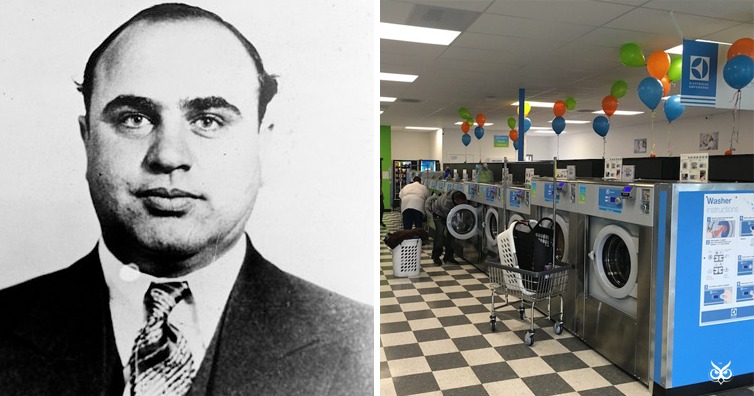Let’s talk money laundering. Criminal’s efficient way of justifying illegally obtained money by mixing them with money made through legitimate business sales.
A common belief is that the term ‘money laundering’ originated because Italian members of the mafia in the U.S., such as Al Capone, purchased cash-only laundromats and used them as a front in order to hide the insane amount of money they were getting from prostitution, bootlegged liquor sales and other criminal activities.
Is this the case though? (the article continues after the ad)
As early as the 1920s, purchasing cash-only laundromats was a common technique for the Italian mafia to ‘launder’ their money. But as the mafia gained more control over the U.S., thus being transformed into a multi-billion dollar business, laundromats just couldn’t explain their huge sums of funds. It was clear that they needed to change the scale of their ‘legitimate’ operations. Especially in the 1930s, when Al Capone was arrested and convicted for tax evasion, the common idea was to get these money laundering businesses off the ground.
The pioneer of this technique was a man called Meyer Lansky – ‘the Mob’s Accountant’. Lansky feared that the same fate would happen to him so, instead of buying physical businesses, he used Swiss Bank Accounts. According to International Money Laundering Information Bureau this is the time money laundering ‘officially’ started. By using the ‘loan-back’ concept, he disguised illegal money as ‘loans’ by foreign banks, he declared them as ‘revenue’ when necessary and thus, they were tax-deductable. Genius.
It’s important to remember that this was the situation as of the early 1930s. The term ‘money laundering’ though has fairly recent origin. It’s first use can be found in 1961 on the 18 U.S. Code § 1961, section 1956 which defines “the laundering of monetary instruments”. But even then, the term was not widely used by people and mainstream media.
The term seems to have been popularized mainly due to two instances: the 1973 Watergate scandal when the U.S. media used it extensively and when it was first appeared in a judicial context in 1982 in the case US v $4,255,625.39 (1982) 551 F Supp.314. Since then, the term took-off and has been accepted and used widely throughout the world.
Conclusion: Even though we can’t be 100% certain that the term did not originate from the mafia’s laundromats, there is no real evidence that it did. After all, this technique was abandoned for at least 40 years prior to the first use of the term as it was not efficient anymore. What makes more sense is that the term ‘laundering’ was chosen because money laundering does what it’s name suggests: it ‘cleans’ the illegally obtained money making them look as if they were generated by legitimate businesses. It’s an indeed a catchy metaphor for ‘cleaning’ ‘dirty’ money.
Myth busted.
BONUS: We couldn’t have an article about money laundering without having the incredible Saul Goodman explaining the basics to Jesse Pinkman:
If you like what you read, then you will definitely love this one: Myth Or Fact: Does The Word ‘Testify’ Come From ‘Testicles’?
Photo: Wikimedia, ExpressLaundromat
Photoshop: I’m A Useless Info Junkie
Sources: Launder – Online Etymology Dictionary | HISTORY OF MONEY LAUNDERING | From the laundromat to Wall Street: a history of money laundering | 18 U.S. Code § 1961 – Definitions – Legal Information Institute | United States v. $4,255,625.39, 551 F. Supp. 314 (S.D. Fla. 1982)



